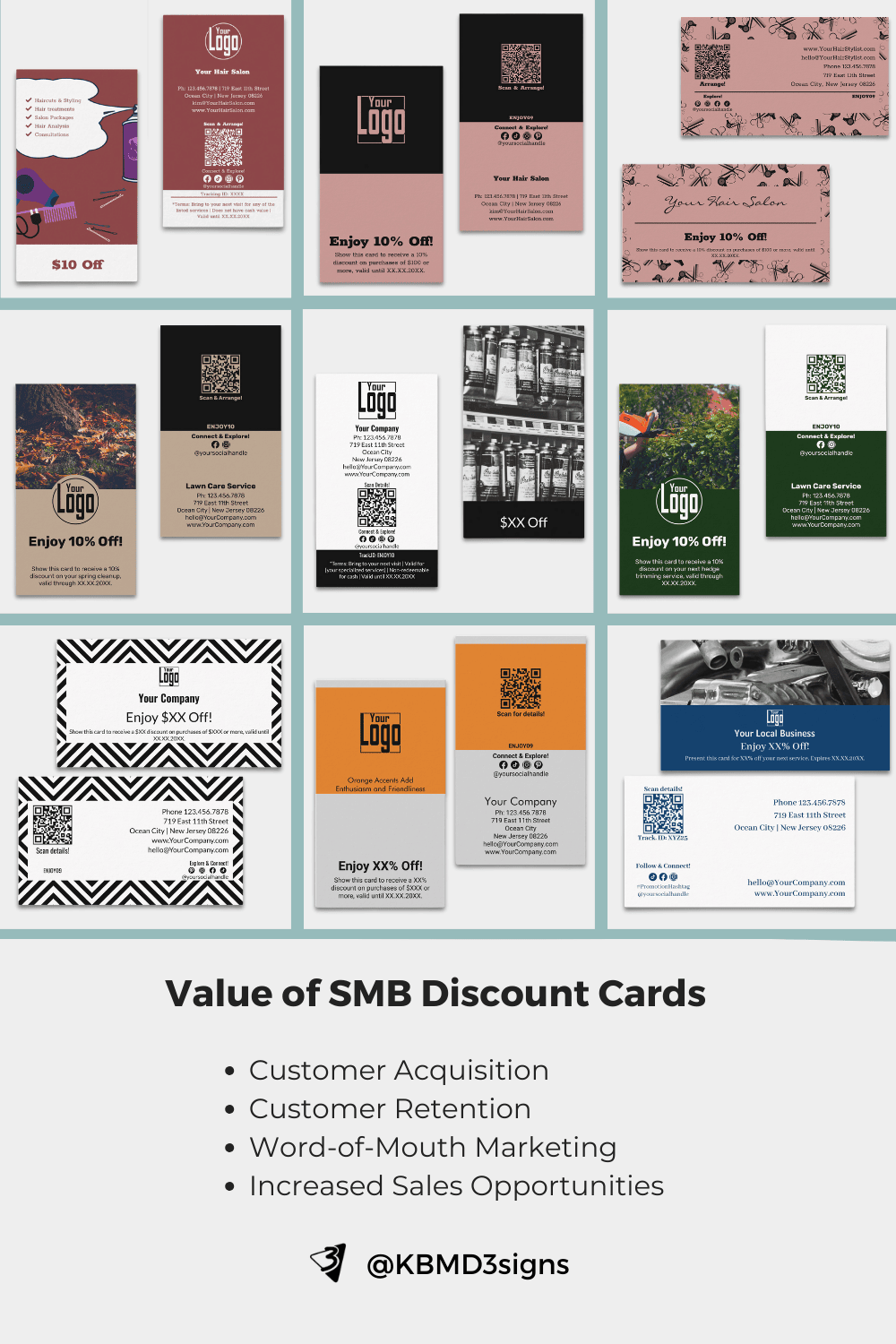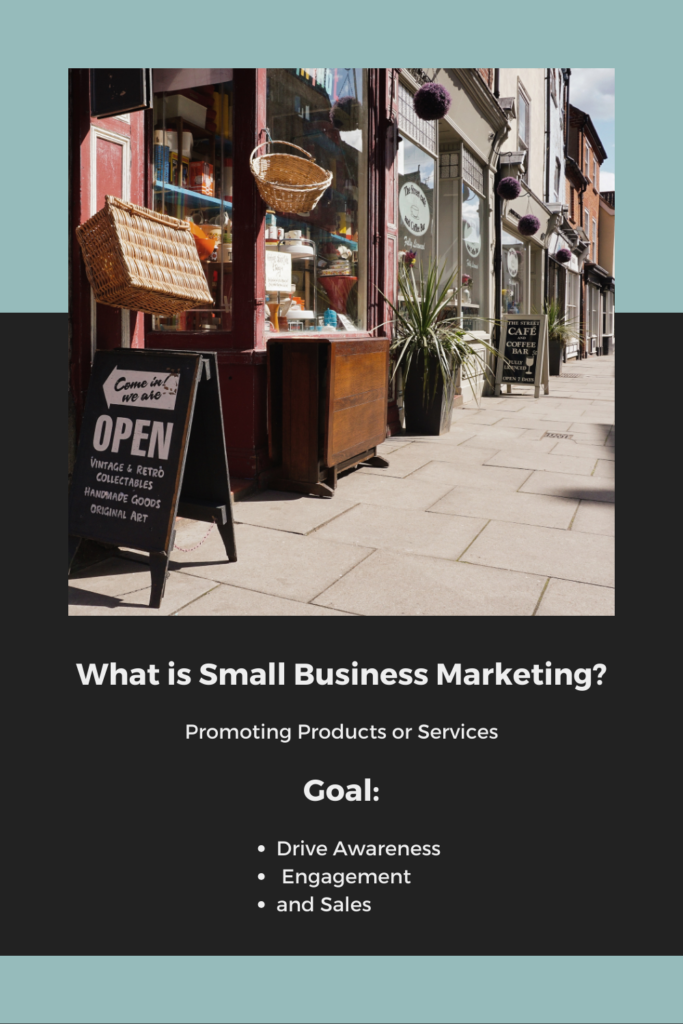Marketing isn’t just advertising — it’s how your brand speaks, shows up, and connects.
In this guide, we break down the essentials of small business marketing, with an emphasis on offline tools, visual identity, and everyday strategies to help you stand out.
What is small business marketing?
It is the practice of promoting your products or services to your target audience with the goal of driving awareness, engagement, and sales. It encompasses a range of strategies, from traditional offline methods to modern digital tactics, all tailored to fit the unique needs and budgets of small businesses.
Marketing is a critical component for any small business. It helps you build your brand, connect with your customers, and compete effectively in the marketplace—even against larger, more established companies.
Article Content:
1. The Role of Offline Marketing in Small Businesses
While digital marketing has taken center stage in recent years, offline marketing remains a powerful tool for small businesses, especially those targeting local customers. Offline marketing tactics can create meaningful, personal connections that are hard to replicate online. Here are a few examples:
- Flyers and Business Cards: Distributing printed materials in your local area can increase awareness of your business.
- Community Sponsorships: Partnering with local events or organizations can enhance your visibility and reputation.
- Networking and Events: Attending trade shows, fairs, or local meetups allows you to build relationships and promote your offerings directly.
The key to successful offline marketing is understanding your audience and ensuring your messaging aligns with their needs and preferences.
2. When to Launch a Marketing Campaign
Knowing when to initiate a marketing campaign is just as important as the campaign itself. Timing can make or break your efforts. Here are a few occasions when small businesses should consider launching campaigns:
- Product Launches: Introducing a new product or service.
- Seasonal Events: Capitalize on holidays, back-to-school seasons, or special days like Valentine’s Day or Mother’s Day for example.
- Anniversaries or Milestones: Celebrating your business’s achievements can attract attention and foster goodwill.
- Local Events: Aligning your campaign with community activities ensures you stay top of mind.
Plan campaigns well in advance and ensure they are tailored to the occasion to maximize impact.
Visit marketing materials as template designs in our Cocoon It! Store on Zazzle.
3. How Colors Influence Marketing Success
Colors play a significant role in shaping customer perceptions and behavior. For small businesses, choosing the right brand colors can increase brand recognition and convey the desired message to your audience. Here are some tips:
- Understand Color Psychology: Different colors evoke different emotions. For instance, blue signifies trust and professionalism, while yellow conveys optimism and energy.
- Stay Consistent: Use your brand’s colors consistently across marketing materials to create a cohesive identity.
- Test for Impact: Experiment with color combinations in flyers, ads, product packaging and labels to find what resonates with your audience.
Effective use of colors can make your marketing materials more visually appealing and impactful.
4. Bridging Online and Offline Marketing
Small business marketing doesn’t have to be confined to one medium. Combining online and offline strategies can amplify your reach and results. For example:
- Use QR codes on flyers or business cards to direct customers to your website.
- Encourage social media engagement by promoting hashtags during in-person events.
- Track offline campaigns with online tools like Google Analytics by creating unique URLs or landing pages.
This integrated approach allows you to capture leads and measure results effectively.
5. Practical Tips for Small Business Marketing Success
- Start Small: Focus on one or two marketing strategies to test what works before expanding.
- Leverage Local Connections: Build relationships with local businesses and community members to expand your reach.
- Measure Results: Always track your efforts to see what yields the best ROI.
All in all, small business marketing is about finding creative and cost-effective ways to connect with your target audience. Whether through offline tactics, well-timed campaigns, or the thoughtful use of color, the right marketing strategy can help your business stand out and thrive. Start experimenting today and unlock the potential of your business!
-

Custom Calendar Magnets for Your Fridge – Stay top of Mind
Read the post …: Custom Calendar Magnets for Your Fridge – Stay top of Mind -

Discount Cards Maximize Potential: Guide for Small Service Businesses
Read the post …: Discount Cards Maximize Potential: Guide for Small Service Businesses -

Hair Salon Gift Certificates – Their Power in Local Offline Marketing
Read the post …: Hair Salon Gift Certificates – Their Power in Local Offline Marketing
6. Frequently Asked Questions (FAQs)
Small business marketing refers to strategies and practices that promote a business’s products or services to its target audience, focusing on building awareness, engagement, and sales.
Examples include distributing flyers, creating business cards, sponsoring local events, and participating in networking or community activities.
Launching campaigns at the right time, such as during product launches, seasonal events, or local activities, ensures that your efforts align with customer needs and maximize engagement.
Colors evoke emotions and perceptions that influence customer decisions. For example, blue can convey trust, while red can create a sense of urgency or excitement.
Use online tools like QR codes or social media to enhance offline campaigns, track results, and engage customers across platforms.


















I am really impressed along with your writing abilities and also with the format in your weblog.
Is this a paid topic or did you customize it your self?
Anyway stay up the excellent high quality writing, it is rare to look a great blog like this one these days.
Thank you so much for your kind words! I’m really glad you enjoyed the writing and the blog format. It’s not a paid topic—just something I put together myself with a lot of love and creativity. Your support means a lot and definitely keeps me motivated to keep sharing quality content. Thanks again for taking the time to comment!